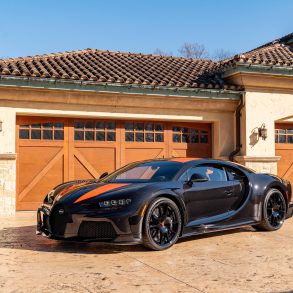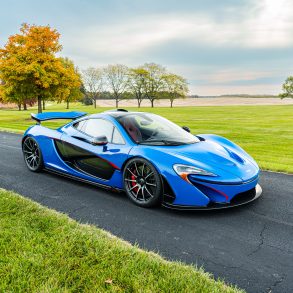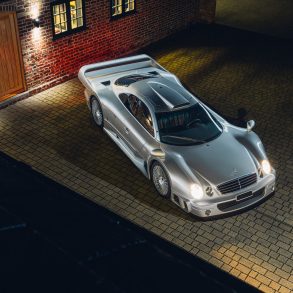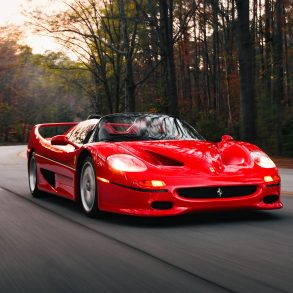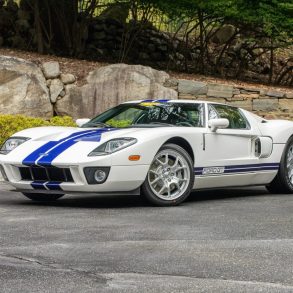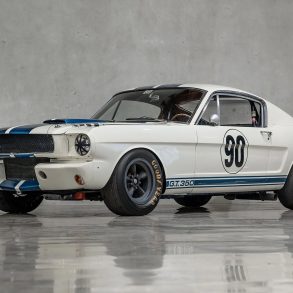The Concorso d’Eleganza Villa d’Este 2011 will be held on the weekend of 20-22 May over the grounds of the Grand Hotel Villa d’Este and neighbouring Villa Erba in Cernobbio on Lake Como. This year’s event will once again serve as a unique stage for the most beautiful cars in the world, but for the first time, motorcycles will also grace the shores of Lake Como.
The Concorso d’Eleganza Villa d’Este is the world’s most tradition-laden beauty contest for automobiles. A tradition of this kind demands to be nurtured, something the President of the Concorso d‘Eleganza Villa d’Este and Director of BMW Group Classic, Karl Baumer, is very much aware of, stating “This kind of tradition can only thrive through ongoing development; in other words, it’s a matter of cultivating a tradition of change, so to speak.”
The 2011 event sees a whole quartet of key changes: the new date at the end of May, the introduction of a second public day on Saturday, the first Concorso d’Eleganza Villa d’Este for motorcycles and the previously announced car sale by RM Auctions held during the Concorso.
It was the positive and, above all, growing acclaim over recent years which the Concorso d’Eleganza elicited on the Sunday that prompted the decision to offer the public an added attraction on the Saturday. That it would be a motorcycle concours awaiting the fans of classic beauties in the grounds of Villa Erba was an obvious move for Karl Baumer, stating “BMW is one of the most successful and traditional motorcycle manufacturers in the world, which makes it a nobrainer to introduce a motorcycle concours – especially as two-wheelers often fall short on the design front.” There will be five competition categories, as well as an hors concours design show.
Based on the criteria familiar from the Concorso d’Eleganza Villa d’Este – such as design, state of preservation and originality – a jury of five will select the best in class and an overall winner from among the 40 or so competing motorcycles. In this first year there will be no prizes awarded by public referendum. “That is sure to follow in the coming years, but our aim right now is to create a new pillar for the Concorso step by step and with due caution,” says Karl Baumer.
Concorso d’Eleganza Villa d’Este 2011
This year BMW marks the 75th birthday of the BMW 328. The celebrations will kick off not far from Lake Como – at the Mille Miglia, where the BMW 328 racing car will be the centre of attention. A week later, at the Concorso d’Eleganza Villa d’Este, the spotlight will turn on the functional aesthetics of this legendary two-seater.
“There is no doubt that, with the BMW 328, our predecessors created an icon of motoring history which to this day still defines the style of two-seaters produced by our company,” says Karl Baumer, underlining the significance of the BMW 328. It remains unclear what kind of birthday present will be appropriate for such an outstanding representative of the BMW product family – “But we’ll definitely come up with something special,” says the Director BMW Group Classic in happy anticipation of the party to be held on the shores of Lake Como.
As every year, the competition for the classic cars will be divided into several vehicle groups. Split up into eight different categories, the 50 or so classics will await the verdict of the five-strong jury. A novel aspect this year is the special focus within the competition: under the overarching theme of “the sixties”, around 20 iconic automobiles in three vehicle categories will represent this style-setting decade for the motoring enthusiasts gathered at Lake Como. The names of the sixties vehicle categories alone promise a high level of quality and style-consciousness: “The Glamour”, “The Sport” and “The Unexpected”.
For the Concorso d’Eleganza competition, the selecting committee has once again picked some unusual beauties from six decades of automotive history. During the annual press conference at the Geneva Motor Show the selecting committee offered a few tasters from the exclusive field of participants.
Alfa Romeo TZ2 Coupé, Zagato, 1965
Alfa Romeo presented the TZ model at the 1962 Turin Motor Show as a roadgoing racing car. It derives the T in its nomenclature from tubolare, a reference to its tubular spaceframe, and the Z from Zagato, the coachbuilders. A limited production run of no more than 102 was built until 1965, before the Alfa Romeo TZ2 would prove far more successful on the race track. Output had been raised to 165 hp, while its weight was once again whittled down, this time to 620 kg, and the chassis was also improved. Alfa Romeo clocked a breathtaking top speed of 265 km/h for its sports car. With the TZ2, coachbuilders Zagato turned out a significant example of Italian car design of the 1960s. By the time production ended in 1967, just 12 examples had left the construction hall. This is yet another example of a car that is not only an exceptional beauty, but also a hand-picked rarity, being showcased at the Concorso d’Eleganza Villa d’Este 2011.
Rolls-Royce Phantom II Special Town Car, Brewster, 1933
The Rolls-Royce from American Rolls-Royce dealer and coachbuilder Brewster& Co is nothing less than the most expensive car of its inception year. But it wasn’t just the price tag that lent it a superlative status in motoring history – it was the car’s design as well. This Rolls-Royce Phantom II blends styling elements of its day into a harmonious and unique whole. The long bonnet, the low-slung greenhouse and, not least, the V-shaped windscreen are the defining features of this one-off. Its inner values are similarly unmatched: gold-plated hardware, indirect lighting and highgrade leather, along with wool carpeting, are designed to spoil and cosset its occupants. All in all, these attributes make up what countless experts deem one of the best and most significant Rolls-Royces ever built.
Jaguar E-Type Coupé, 1961
The Jaguar E-Type ranks among the most famous cars in the world. For many auto fans, its shape remains to this day a stunning synthesis of athleticism and delectable design language. But beyond the features it shares with all its sibling production models, this E-Type boasts a unique history. It made its appearance at the 1961 Geneva Motor Show, and thus counts among the first E-Types ever built. Over the decades, however, its distinguished origins fell into obscurity – until 1999, that was, when an ad appeared in a Swiss paper and it quickly emerged that this was the “Geneva car”. A Swiss collector undertook a comprehensive restoration of this “first-born” EType based on original documentation. It would be almost a decade before the work was completed. This rare E-Type differs from the production model in more than 30 ways, inside and out. There’s an opportunity to identify them at this year’s Concorso d’Eleganza Villa d’Este.
For more information, visit www.concorsodeleganzavilladeste.com.
[Source: BMW Group]




